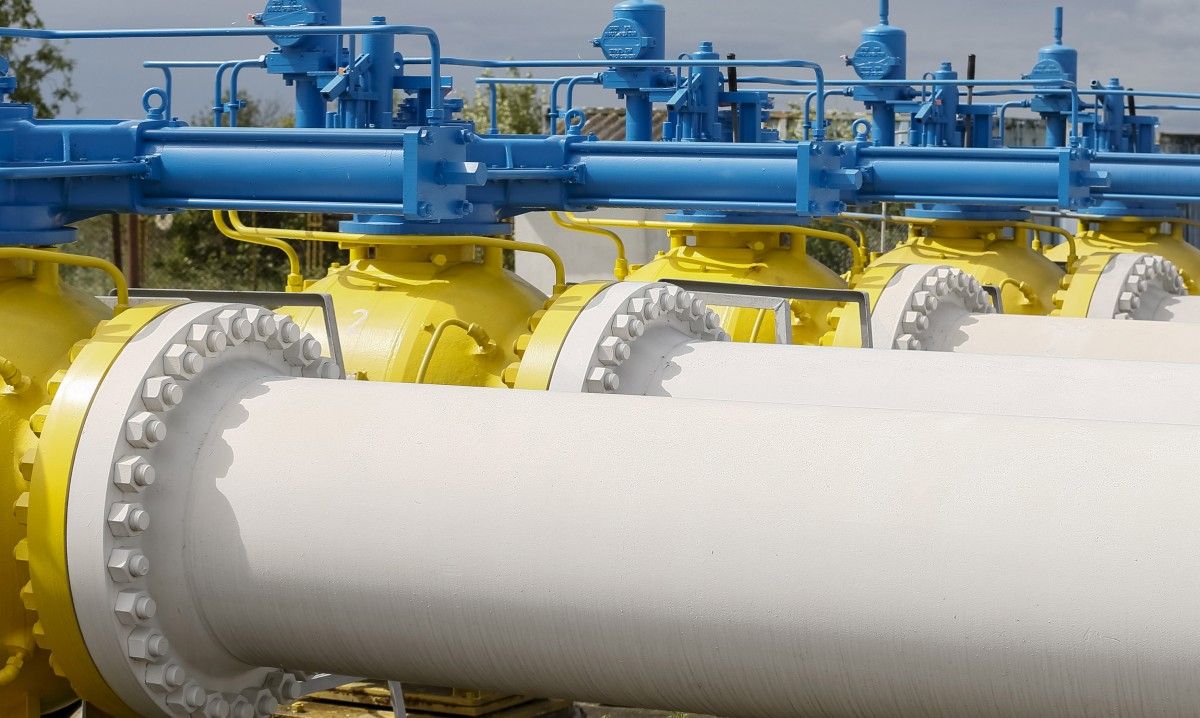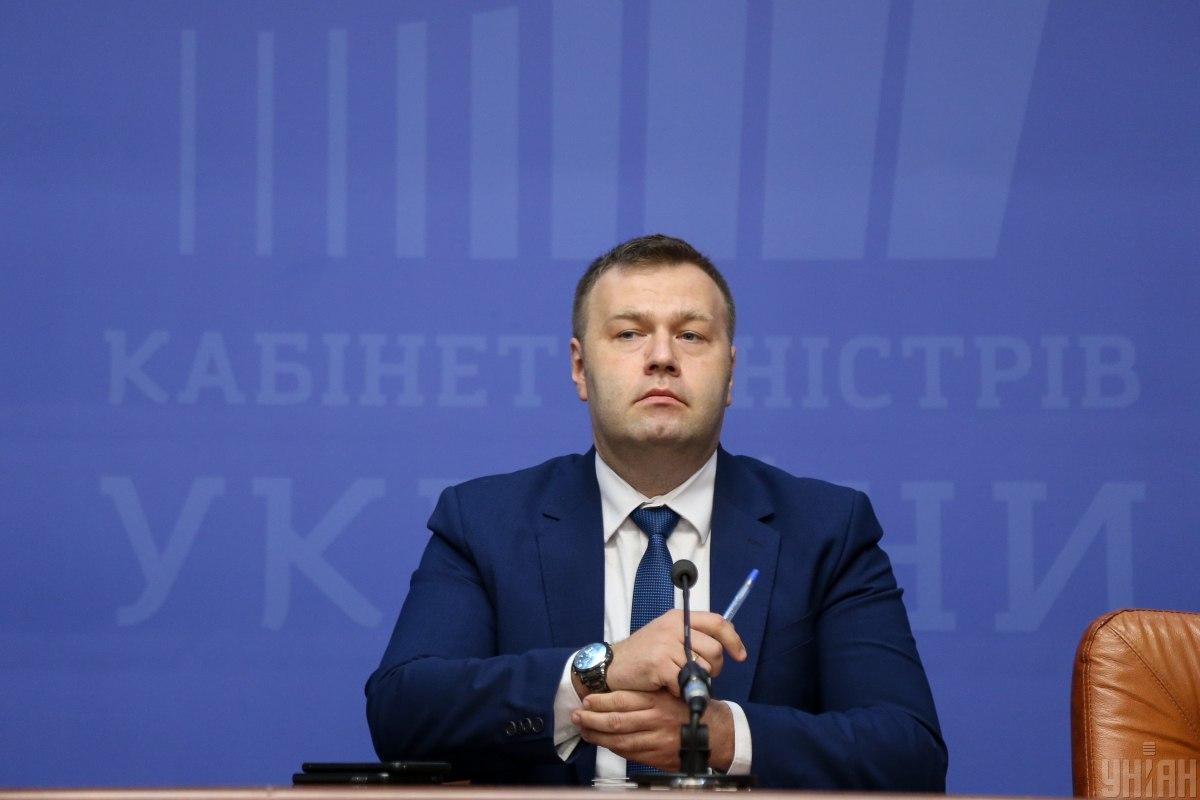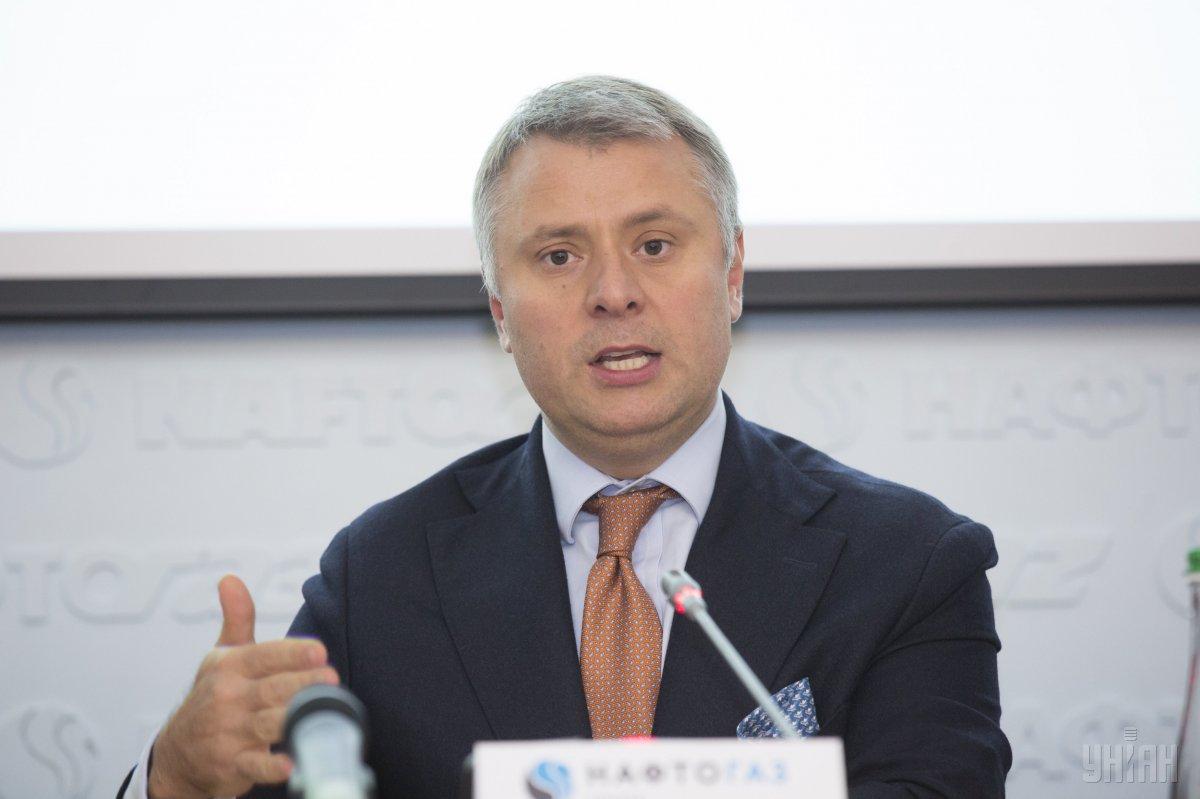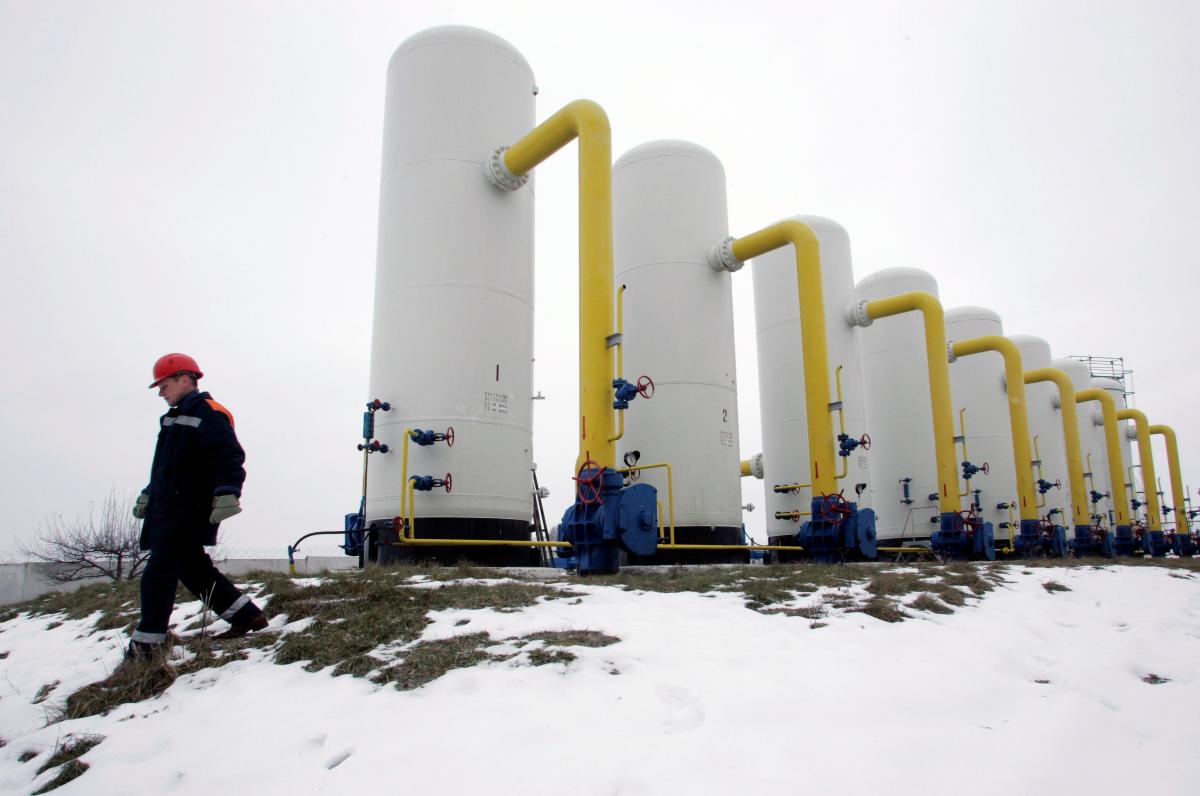
Naftogaz, Gazprom, and gas transit contract: who will ultimately win the "gas" battle
Ukraine and Russia agreed on a new contract for the transit of Russian gas via the Ukrainian territory to the EU after the existing deal expires on December 31, 2019. The protocol of the future agreement was coordinated by the parties in Minsk on December 20. The formal signing of the contract is scheduled for December 29. UNIAN learned whether Naftogaz or Gazprom could be declared a winner.
The existing gas transit contract between Ukraine and Russia expires on December 31, 2019. Therefore, it is not surprising that in 2018-2019 alone, five rounds of trilateral talks were held in the EU-Ukraine-Russia trilateral format. Each of the parties attempted to defend their own positions.
The Ukrainian side initially insisted on signing a contract for ten years with an annual transit volume of at least 60 billion cubic meters, raising the tariff for gas transmission in line with European prices, as well as signing a contract taking into account EU energy rules, and Russia's unconditional payment of about $3 billion awarded to Ukraine by the Stockholm arbitration. The Russian side proposed to conclude a contract for one year, put forward a demand for Ukraine to drop the Stockholm win, and seal a contract for direct gas supplies.
The latest meeting in a trilateral format was held in Berlin December 19. Following the talks, Vice President of the European Commission, Maros Sefcovic, said an "agreement in principle" had been reached on all key issues.
The Normandy Four summit in Paris played a significant role. It was there where Ukraine and Russia at the presidential level came to some kind of compromise version of the new transit agreement. The U.S. sanctions of December 21, which hit the Gazprom bypass pipelines, designed to deprive Ukraine of gas transit state status, also helped make Russia more "compliant".
Finally, after many hours of negotiations in Minsk on December 20, Ukraine and Russia signed a protocol of agreements on continued gas transit via Ukraine, which includes settlement on mutual claims, except for Gazprom's $2.6 billion debt over the Stockholm arbitration plus penalties.
During the negotiations, direct deliveries of Russian gas were discussed, which had been "frozen" by Ukraine since the fall of 2015 in response to Russia's military aggression in Donbas. Since then, gas purchases have been carried out in reverse mode – from European traders.
What the parties finally agreed on became clear after a briefing by representatives of the Ukrainian delegation at the President's Office on December 21.
Transit Contract Details

Minister of Energy and Environmental Protection of Ukraine Oleksiy Orzhel says a new transit contract will be concluded for a period of five years with the possibility of its extension for ten years. It provides for guaranteed minimum volumes of gas transit in 2020 at the level of 65 billion cubic meters, and in 2021-2024 – at 40 bcm. The agreement will be concluded in full compliance with European principles.
We are not talking about direct gas supplies from Russia to Ukraine. "We excluded direct deliveries from the agreements. You will see this in the protocol. If there will potentially be any, they will be implemented only on the basis of the European hub," Orzhel said, noting that the protocol simply laid down the principles on which such deliveries could be made.
The minister says the parties discussed the likelihood of an increase in gas transmission tariffs. "The tariff should grow. That is, there will be a slight increase in the tariff for transmission. The corresponding tariff increase, based on volumes and guided by European tariff setting methodologies, will be determined by [our] regulator," said Orzhel.
In addition, he did not rule out the possibility that by the end of the year, subject to the agreements reached during the negotiations, Naftogaz would receive about $2.9 billion in monetary compensation from the Russian Gazprom in line with the Stockholm arbitration award.
"The package option assumes that there will be a settlement agreement, according to which Gazprom will pay the actual amount of three billion dollars (including interest and penalties) accrued by the Stockholm arbitration award," Naftogaz Executive Director Yuriy Vitrenko said, adding that during the week the parties will work constructively to resolve the issue of the final signing of agreements before the end of this year.
According to him, the fact that the agreements will be concluded in full accordance with European principles "guarantees fairness of these agreements, transparency of these agreements." The official suggests this is both a fair decision for Ukraine and the opportunity to ensure "reliable gas transit via Ukraine to European consumers."
Another important aspect is that in case of the signing of a transit contract, Naftogaz agrees to withdraw a new lawsuit against Russian Gazprom in the Stockholm arbitration worth $12 billion. The existing arbitration proceedings between Naftogaz and Gazprom shall be settled.

"If we are talking about claims in the new arbitration, in the package with the extension of transit, the suggested option is a complete settlement of all claims from all sides. This means that there will be no open claims on either side after the package decision is introduced," Vitrenko said.
According to the protocol, Ukraine will also drop its demand to recover UAH 172 billion from the Russian gas monopoly in accordance with the decisions of the Antimonopoly Committee and the Commercial Court of Kyiv, which were adopted in 2016.
At the same time, according to Vitrenko, $5 billion claims against Russia over the seizure of Naftogaz assets in Crimea remain in place, since they are not part of the agreements.
Naftogaz vs Gazprom: who wins the squabble?
Director of the Institute for Socio-Economic Transformation, Ilya Neskhodovsky, considers the protocol of the future transit agreement to be quite positive for Ukraine, and the signing of the agreement before year-end – quite realistic.
"Indeed, Ukraine sought a contract for ten years, receiving only five. I think this is the only concession on the part of our country. Concessions on other positions are minimal," he said.
The expert emphasizes that globally, all contracts are the result of a compromise: "If we compare the positions of Russia, they initially sought to conclude a contract for one year, which was enough for them to complete Nord Stream 2 and Turkish Stream. Accordingly, this would make it possible to completely exclude Ukraine from the system of gas supplies to Europe. That didn't work out. They also failed to exclude the payment of obligations under the Stockholm arbitration. For years, we've been trying to get this payment, litigation is underway, and it could go on for another few years."

As for the claims, which Ukraine dropped, Neskhodovsky says the arbitral awards on them are ambiguous. "Therefore, claiming that they would be 100% in favor of Ukraine wouldn't be right. Regarding the decision of our Antimonopoly Committee, most likely, the decision would not be taken into account in international courts," the expert suggested.
In his opinion, 65 billion cubic meters of gas in the first year and 40 billion cubic meters in the next four years is sufficient for the normal functioning of the Ukrainian gas transmission system. And by increasing the cost of transit, Ukraine could compensate for possible losses.
"The transit agreement will definitely be signed before the end of the year. We must not forget that the European Union took part in the negotiations. And had Ukraine not gone for a compromise and made some concessions, this would have significantly changed the EU's attitude towards our country. If Russia does not sign it, Gazprom will lose about 40% of the European gas market, which is a significant financial loss. Therefore, in this situation, the new agreement is a mutually beneficial, compromise solution. And the concessions our country went for are quite reasoned. On our part, everything necessary is being done to ensure GTS profitability," said Neskhodovsky.
Director of the Center for Energy Research Alexander Kharchenko has a different opinion. He also considers the protocol a positive thing for Ukraine, while remaining skeptical about the signing of a new transit agreement before the New Year.
"What's been signed under a transit agreement looks good for our country. In general, the idea of the protocol is absolutely adequate and can be implemented well. But I'm not sure that Gazprom will be ready to sign everything in the form of obligations and agreements. I don't expect Gazprom to sign anything based on this protocol. I think it was solely a roundabout maneuver to try to 'repulse' American sanctions. Germans have already carried out a diplomatic attack in Washington under the slogan of 'look, Russians and Ukrainians have already agreed on everything.' If you take into account that the people who signed the protocols bear no obligations, I’m sure the Russians couldn't care less about this piece of paper. They will later claim they changed the strategy and now they would consider other options. I believe that a lot of work remains to be done to make the agreement a reality," said the expert.
President of the Center for Global Studies Strategy XXI, Mykhailo Honchar, also has no trust in the transparency of agreements on the part of Russia. In this regard, it criticizes Naftogaz for refusing from filing claims against Gazprom. Such actions are inappropriate, Honchar believes, since in the future it is impossible to rule out violations by Gazprom of their promises (especially since such behavior is traditional for them). The fact that Gazprom promises 65 bcm of gas volumes is just a situational victory. The Russians understand that they will not be able to complete the construction of Nord Stream 2 as a result of sanctions, while the shortage of gas in the EU poses a threat of considerable fines.
Honchar focuses on the fact that the protocol contains no condition Naftogaz voiced earlier – "transport or pay". And this is exactly what's important for Ukraine in the context of gas transmission to Europe. Moreover, with a volume of 40 billion cubic meters per year, the Ukrainian GTS will not operate at full swing.
"The Ukrainian GTS, amid a decrease in transit, will have to raise the tariff. In turn, Gazprom will respond by refusing to use it as non-competitive. At the same time, the 'treacherous' position of Europe is 'nothing personal, just business', while competition plays the biggest role," the expert noted.
Another important detail is that no solution is seen in the protocol to the issue of the purchase of Russian gas on the eastern border of Ukraine. "It was necessary to fix the gas delivery and acceptance points, moreover, signed by the European Commission," Honchar underlines.
"As yet, neither the Ukrainian nor the European side has fixed a position in the protocol taking into account Article 274 of the Ukraine-EU Association Agreement – Ukraine and the European Union have the right to use the free capacities of gas and electricity supply systems. Europe simply says it's none of their business, while Ukraine, which is very strange, avoids this clause of the treaty. But this article clearly regulates the foundation – first, free capacities of the Ukrainian gas transmission system shall be used, and only then shall bypass flows be completed," he added.
Today, Naftogaz assures that the company acts in the interests of Ukraine, agreeing with Gazprom and other parties involved on the details of legal and commercial conditions. Now work is underway to finalize the texts of the agreements provided for by the protocol. In particular, it is about an agreement on the settlement of mutual claims, on the organization of transit, and on the reservation of capacities between Naftogaz and Operator of Ukrainian GTS. In addition, the draft is being agreed of the agreement on the interaction of network operators with Gazprom representatives. The conclusion of such an accord is the first step to create the technical possibility for continued transit of Russian gas after January 1, 2020.
The signing of the deal with Gazprom is scheduled for December 29, when all aspects of the agreements will become clear. There are high hopes that Russian gas transit to the EU via Ukraine will not halt on January 1, 2020, and that the "energy collapse" predicted by a number of experts won't happen.
Nana Chornaya

